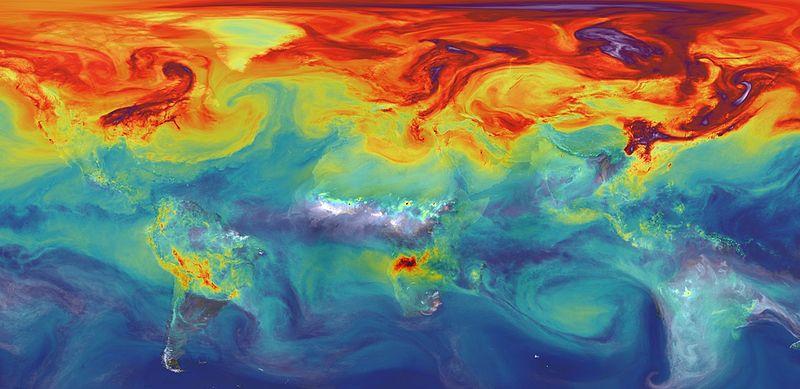Researchers have found Australians do not want both sides of the argument when climate change is at issue. They also found (encouragingly) that the most popular sources of climate change news are scientists, experts and academics (50%). The findings are reported today in The Conversation in an article by Sora Park, Associate Dean of Research in the Faculty of Arts & Design, Kerry McCallum, Professor of Communication and Media Studies, Director, News and Media Research Centre, and Kieran McGuinness post-doctoral felllow, News & Media Research Centre, at the University of Canberra They write:
Should journalists always treat an issue even-handedly? Our research reveals that when it comes to climate change, many Australians would prefer they didn’t. For general news, people want news outlets to reflect a range of views so they can make up their own mind about an issue. However, when it comes to news about climate change, four in ten say news outlets should pick a side.
There is a divide driven by political orientation on how people think news outlets should be reporting on climate change. More than half (51%) of those who identify as left-wing and 42% of those who identify as centre of politics say news outlets should take a clear position. In contrast, only 24% of right-leaning audiences say so.
In fact, the majority of those on the right (66%) are in favour of news remaining impartial and leaving it up to people to decide. Revealingly, however, those who identify with the centre are not on the same page as those on the right. Only 41% of those who identify with the centre support impartiality on climate change.
These differences may partly be explained by varied levels of concern and where people get news about climate change.
Concern about climate change is becoming increasingly polarised across the political spectrum. On the left, 81% express concern, but only 32% of right-leaning consumers do. There is a disconnect on climate change between people who identify with the centre of politics and those who identify with right-wing beliefs, particularly among those with higher incomes and in urban areas.
While more than a third (38%) of right-wing consumers regard climate change as a “not very” or “not at all” serious problem, centrists are more concerned, attentive to climate change news and willing to see journalists take a clear position on the issue. This may help understand the success of teal independents in the 2022 federal election, many of whom campaigned on climate action in traditionally centre-right urban electorates.
News consumers in regional areas remain less concerned about climate change than those in cities, despite extreme weather events and bushfires disproportionately affecting regional areas. This may reflect the fact that higher proportions of older and more conservative Australians live in the regions.
It must be stressed the survey was in the field after a mild summer and before the severe floods in Queensland and News South Wales. This is possibly why the proportion considering climate change as a serious problem dropped by three percentage points. Now, three in four (76%) Australians regard climate change as a serious issue.
Encouragingly, rather than relying on celebrities and political parties, people go to experts and traditional news outlets for news about the climate crisis. The most popular sources of climate change news are scientists, experts and academics (50%), documentaries (33%) and major news outlets (27%).
There seems to be a small but important minority of Australians who have disengaged from the issue entirely. One in five Australians say they don’t pay any attention to climate change news.
Again, we see a steep political divide in whether people pay attention to climate change news. Almost one-third (29%) of right-wing consumers are disengaged from climate change news, while 97% of left-wing consumers access news about climate change. This polarisation has persisted and widened since 2020.
When it comes to reporting about climate change, Australians want less focus on individual responsibility (16%) and more attention on what governments and large companies should do about it (42%). Younger generations and left-wing Australians are particularly keen on both of these things.
The issue of climate change turned out to be serious enough to convince many to vote against traditional two-party lines, reshaping the political landscape and placing action on climate change as a spotlight issue for the incoming Labor government.
Source: The Conversation












